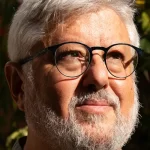Lynda Kinkade speaks with former hostage negotiator for Israel, Gershon Baskin, after Israeli forces rescued two hostages in southern Gaza.
KINKADE: So, you’re a journalist, a former hostage negotiator. You’ve worked on the peace process. I want to start with the current hostage
situation. We saw two men released while a bombing campaign took place to give the IDF cover, where dozens of men, women and children were killed.
The Israeli Prime Minister described it as the perfect operation. How would you describe it?
BASKIN: I would describe it as a heroic operation of Israeli commandos with a great price to the civilian population in Gaza. I’ve been saying sincethe very first day of the war that the only way to bring all the hostages home safely and alive is through a negotiated agreement with Hamas.
There were likely to be attempts set military rescues. There have been as was said, this is the second successful attempt, and three hostages have
been brought back this way. There are still 134 hostages in Gaza. It’s believed that between 30 and 50 of them have already been killed, either an
Israeli bombings or by executions by Hamas.
There’s no doubt that every day they stay in Gaza, it’s a risk to their lives. The Israeli assumption is that they are somewhere between Khan Yunis
and Rafah in the 20 percent of the southern part of the Gaza Strip where more than a million and a half Palestinian civilians are also waiting for
this war to end.
There’s no positive scenario in military operations attempting to bring the hostages home, but for the Palestinian civilian population and probably for
the hostages, and it’s best that, that meeting that’s taking place tomorrow in Cairo come up with some new ideas to enable at least a renewed ceasefire
and the return of some of the hostages.
While perhaps during a 40-day ceasefire, we come up with some ideas, how to have a diplomatic end to this war. Because the war going on is just going
to kill more innocent people and bring more suffering to everyone.
KINKADE: I want to get your take on that diplomatic end to the war in just a moment, but first, I want to get your response to the proposal that Hamas
put on the table, because we know the Israeli Prime Minister says that military pressure is the only way to bring these hostages home. But Hamas
has put forward a three-phased plan.
The first part of the plan would be women and children in exchange for some Palestinian prisoners. What do you make of that proposal?
BASKIN: Well, the main problem with the proposal is if there’s a linkage between phase 1, 2 and 3, because phase 3 is the end of the war and Israeli
withdrawal, leaving Hamas in control of Gaza. And that’s unacceptable to Israel. The problem with the proposal that was put forth by Hamas in phase
one is that they were demanding from Israel to release 1,500 prisoners of which 500 of them are serving life sentences for murdering Israelis.
There’s a total of 559 prisoners, Palestinian prisoners in Israel who have murdered Israelis and are serving life sentences. So, this term of zero
point-of-view is a non-starter, both in the number of the Palestinian prisoners with blood on their hands as they call it, the large number of
1,500 for the civilian hostages.
And if there’s a linkage after a 45-day period to the phase 2 and 3, which ends the war with Hamas in power, then for Israel, it’s total defeat when
Israel wants to make sure that this war ends without Hamas in control of Gaza.
KINKADE: This war, of course, has been going on for over four months. You’ve thought about what happens after the war. What needs to happen?
BASKIN: Well, the first thing is I’ve said, we need to hope that they can separate phase one of this deal from phase 2 and 3, which would enable this
calming period, the cooling off period of 45 days during which time, what needs to happen is both at the international, political level, there needs
to be a plan that President Biden has already spoken about the path toward Palestinian statehood.
We don’t need a path, we need the United States and the European Union, United Kingdom, Australia, Canada, Japan, other countries to recognize the
state of Palestine, because we need to make Palestine real for Palestinians to know that they can live for Palestine and not only die as martyrs for
Palestine.
We need the Palestinian Authority President to step aside and appoint a prime minister or at least, a temporary administrator for Gaza who’s a
technocrat, who can build a new government in Gaza to take over from Israel, because the longer Israel stays in Gaza, the more I promise you,
there will be armed insurgency against Israeli soldiers who will be coming back in body bags.
We need an international effort to put down a commitment now to rebuild Gaza, and a regional framework which will promise security, stability and
economic development. All that needs to happen with the hostage still being done, prisoners being released, Israel withdrawing from Gaza and creating a
situation where Hamas will no longer rule Gaza —
KINKADE: Yes, that certainly —
BASKIN: You also need to secure the Gaza-Egypt border.
KINKADE: Yes, that certainly is key.
BASKIN: Yes.
KINKADE: We appreciate your perspective on all of this as always. Gershon Baskin, good to have you on the program. Thank you.
BASKIN: Thank you very much.
See the original video at



